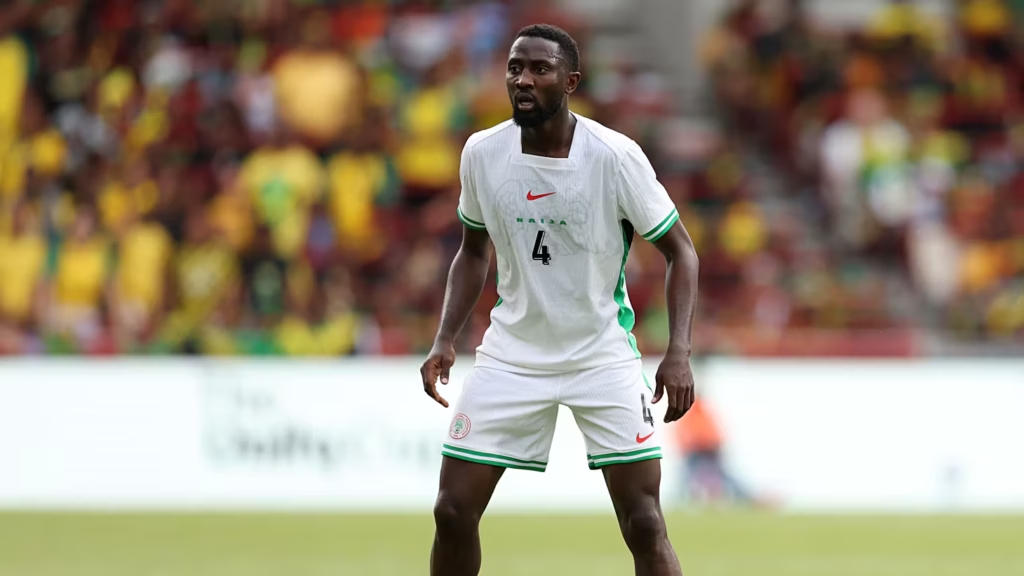Nigeria’s hopes of reaching the 2026 World Cup ended in heartache on Sunday as the Democratic Republic of Congo edged the Super Eagles in a tense penalty shootout in Rabat. The match finished one all after extra time, but the tactical story that unfolded across the 120 minutes revealed much more than the final score. Congo advanced four to three on penalties, but the patterns, decisions and structures that shaped the contest offered a clear verdict on where both teams stand.
Nigeria began brightly and took the lead through Frank Onyeka, who arrived in the right channel at precisely the right moment to guide home the opener. His timing and movement gave Nigeria early control, but the lead did not hold. Congo equalized through Meschack Elia, who cleverly attacked the gap between Nigeria’s fullback and centre back. It was a reminder of how vulnerable the Super Eagles can be when their defensive line stretches without coordinated coverage from midfield.
From that moment, the match turned into a tactical duel rather than an exchange of chances.
One of the most decisive turning points came when Victor Osimhen was removed at halftime. His absence reshaped the entire complexion of Nigeria’s attack. With Osimhen on the pitch, Congo’s centre backs were forced to track deep runs, hold a lower line and constantly adjust their positions. Without him, Nigeria lost vertical threat, lost pressing triggers and lost the structural focal point that binds their forward play together. The midfield suddenly found no target to connect with, and the fullbacks became isolated in wide areas. Congo capitalized by controlling central spaces and dictating the tempo of transitions.
Congo’s performance reflected a team fully aware of its historic opportunity. Their defensive structure remained compact, disciplined and intelligent throughout. They shifted between a narrow block and a wider press only when necessary, preventing Nigeria from building rhythm. When possession turned over, their counter attacks were direct and well rehearsed, with Elia and his supporting runners attacking channels that Nigeria repeatedly struggled to protect. It was the performance of a team chasing a long awaited return to the World Cup stage, their first since 1974 when the country competed as Zaire.
For Nigeria, the defeat confirmed deeper issues that have grown more visible over the past qualifying cycle. The team has lacked cohesion in pressing, clarity in ball progression and creativity in structured possession. Against Congo, these weaknesses resurfaced in their most punishing form. The Super Eagles often played in fragmented lines, with too much distance between midfield and attack, and with little composure when Congo crowded central areas. The result is Nigeria’s second consecutive World Cup absence, and their third since 2006, a trajectory that suggests stagnation rather than misfortune.
Attention now turns to the future and the unavoidable need for a rebuild. Eric Chelle has shown calm leadership and tactical understanding, yet the squad requires renewal and clearer identity. Several long serving players may have reached the final chapter of their international careers, while younger, more dynamic options wait for opportunities. The decision to leave Raphael Onyedika on the bench, despite his exceptional recent Champions League displays where he demonstrated press resistance and intelligent positioning, raised questions about Nigeria’s selection strategy and whether the team is building toward a coherent tactical model.
The defeat in Rabat was more than a missed World Cup. It was an assessment of Nigeria’s footballing direction. Until the Super Eagles establish a consistent style of play, integrate their most suitable talents and align their tactical structure with modern football demands, qualification campaigns will continue to hinge on isolated moments rather than collective dominance.
The task ahead is clear. Nigeria must rebuild not only its squad, but its identity. Only then will the Super Eagles return to the global stage with the confidence and structure worthy of their history and ambition.
Should we send you latest update about your favourite sports and team?
Enter you email in the box below and hit the subscribe button to join our teaming 876+ sports community.
